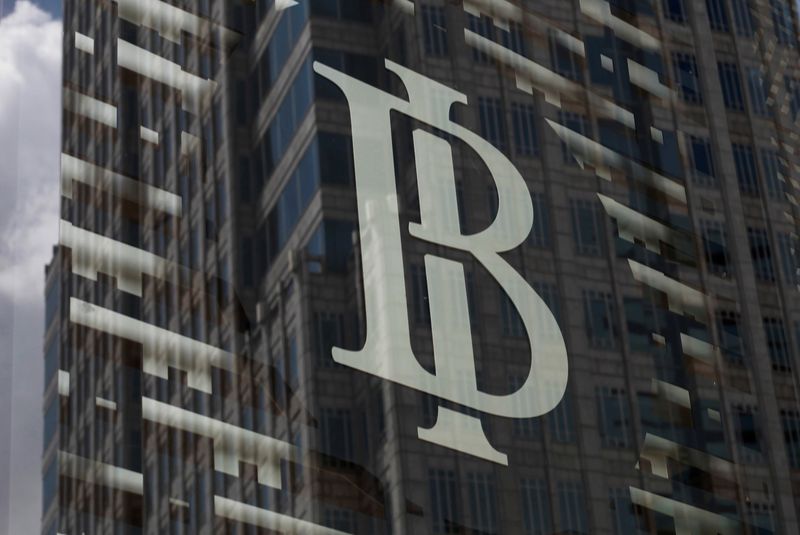By Gayatri Suroyo and Stefanno Sulaiman
JAKARTA (Reuters) - Indonesia's central bank left interest rates at a record low on Thursday, saying it was monitoring risks from rising inflation while downplaying recent pressure on the rupiah currency.
Bank Indonesia is expected to raise rates in the third quarter, analysts say, to shore up a weaker rupiah and guard against capital outflows from aggressive U.S. rate hikes.
BI kept the benchmark 7-day reverse repurchase rate at 3.50%, as expected by the majority of economists in a Reuters poll. Its two other policy rates were also unchanged.
BI remains one of the few major Asian central banks not to have lifted rates from a pandemic record low since inflation has held within its 2%-4% target range. The Philippine central bank hiked rates for a second consecutive policy meeting on Thursday.
BI Governor Perry Warjiyo told a news conference he would continue to monitor inflation, including expectations of price pressures and core inflation and take further monetary normalisation measures accordingly.
"Even though Bank Indonesia did not raise interest rates, it does not mean this will disturb our external resilience," Warjiyo said, citing abundant foreign exchange supply from an expected balance of payments surplus and low current account deficit.
Inflation may slightly overshoot its target this year to 4.2% by year-end, he reiterated, adding the authorities had been taking rupiah stabilisation measures to contain imported inflation. Headline inflation in May stood at 3.55% on year.
The governor also warned of stagflation risks for the global economy, but maintained BI's 2022 economic growth forecast for Indonesia of 4.5% to 5.3%.
Economists in the Reuters poll expect BI's first rate hike will come in the next quarter.
"The central bank acknowledged the risk of inflation breaching the target in the second half of the year and pressure on the currency from global cues, but did not exhibit any urgency to normalise policy," Radhika Rao, senior economist at DBS Bank in Singapore, said.
The rupiah has this month dropped to its weakest since October 2020 amid capital outflows leading up to and after the Federal Reserve raised U.S. rates by three quarters of a percentage point.
However, unlike in previous periods of U.S. monetary tightening when Indonesian financial markets were some of the most volatile, the rupiah is now one of emerging Asia's best performing currencies having fallen by about 4% so far in 2022.
Some analysts expect the rupiah to fall further due to BI's dovish stance.

"With the current dynamic expected to remain in place, we expect IDR weakness to continue in the near term until BI finally decides to adjust monetary policy, possibly in the second half of the year," ING economist Nicholas Mapa said in a note.
During the pandemic, BI cut interest rates by a total of 150 basis points and injected billions of dollars into the financial system. It has announced hefty hikes in banks' reserve requirement ratio in its first move to normalise monetary policy.